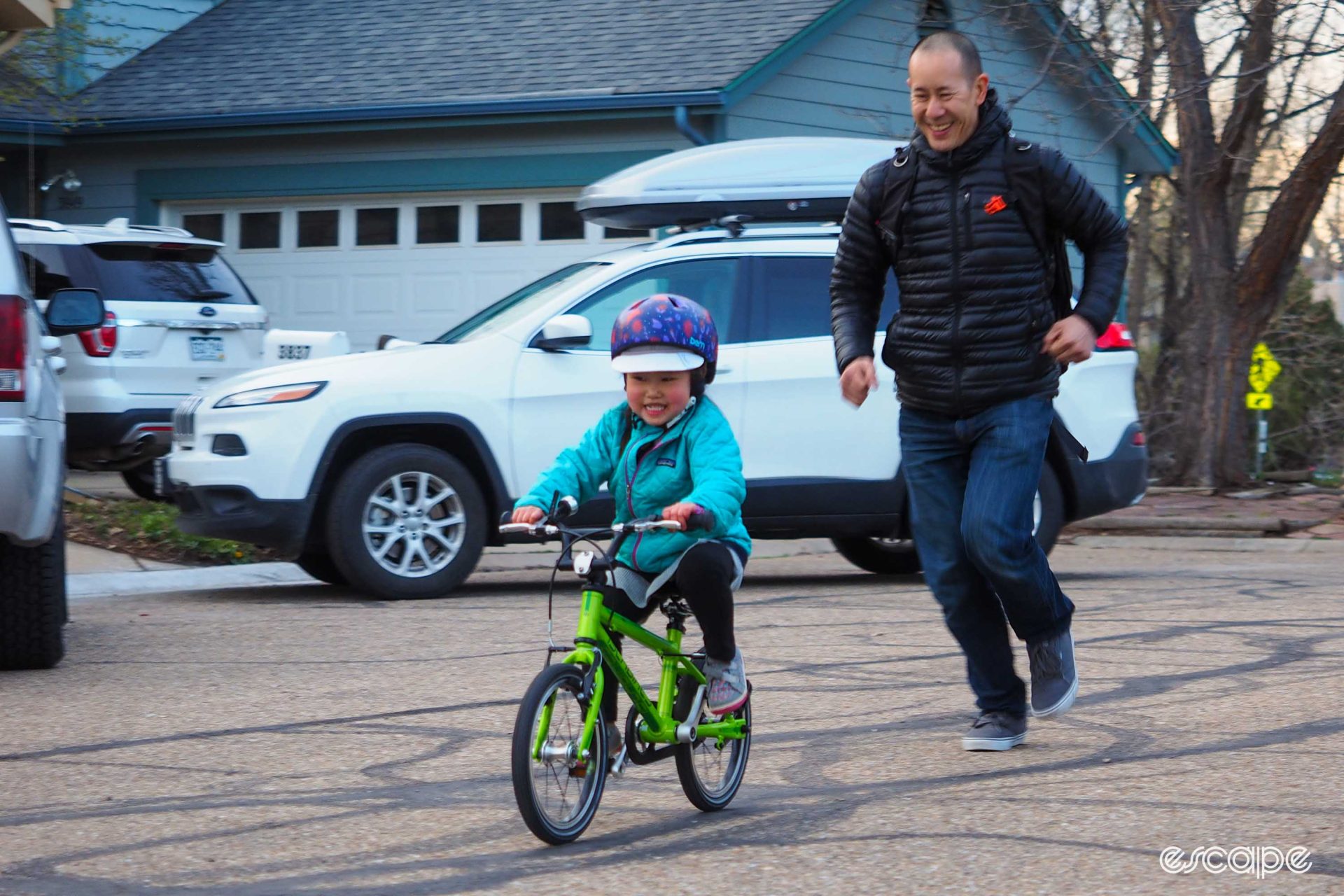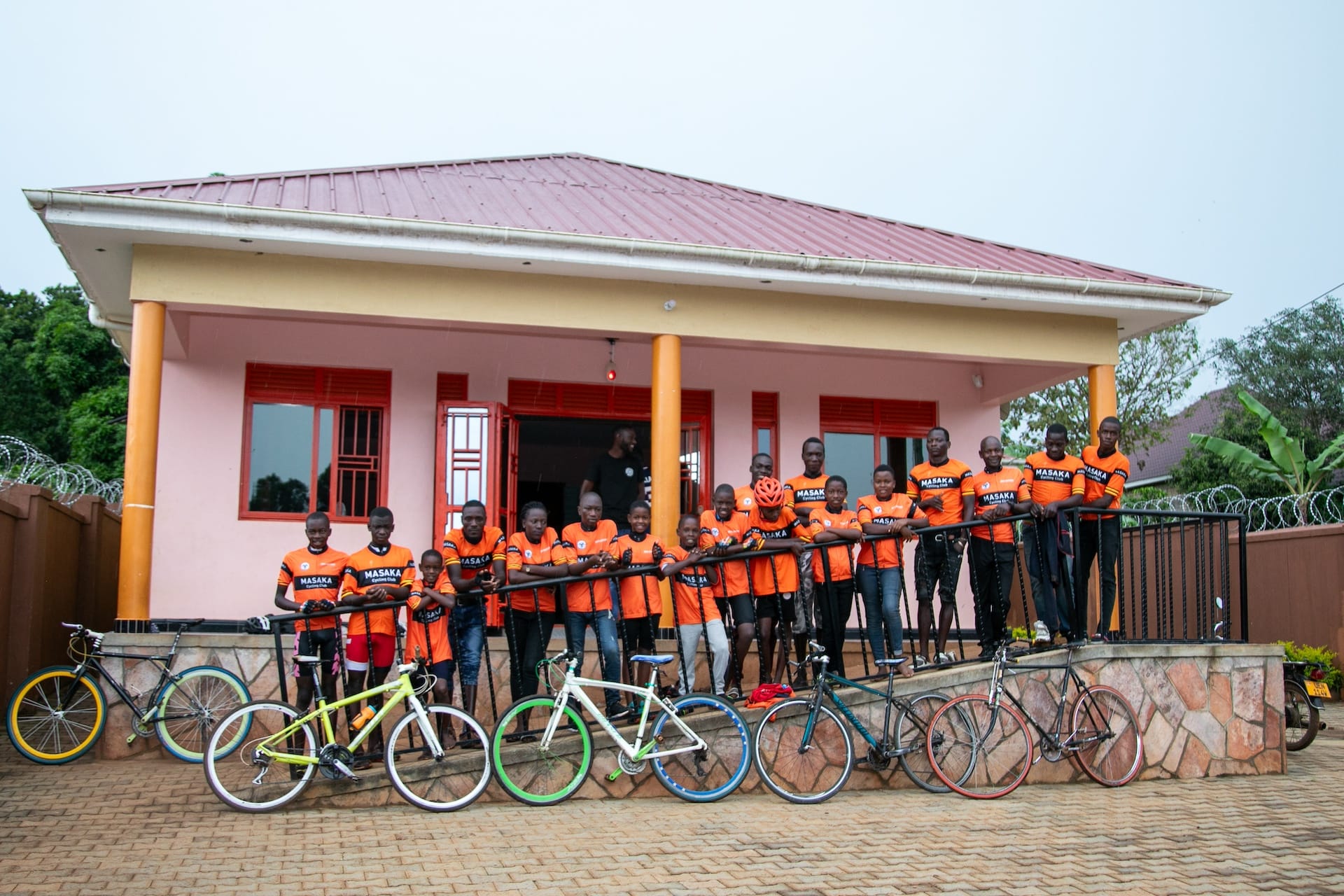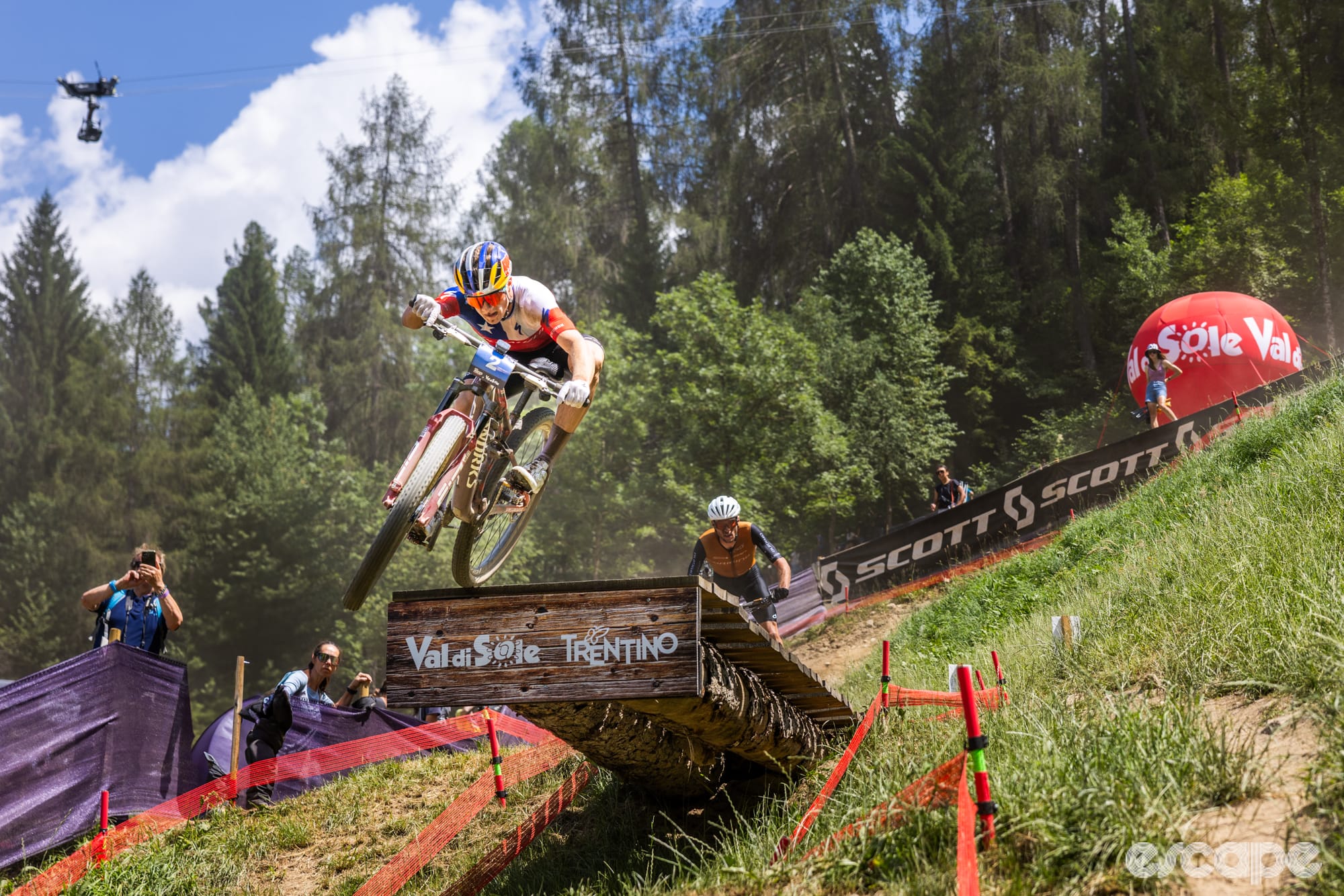I still remember the moment as if it were yesterday.
It was April 2017, and my wife and I were at the end of our cul-du-sac with our then-3 1/2-year-old. Lime green Islabikes Cnoc 14. Purple Bern helmet. Turquoise puffy jacket that was probably two sizes too big. Velcro sneakers. After just a couple of failed attempts in the days prior, she’d just taken her first pedal strokes fully unassisted, and you could almost taste the excitement in the air. Had her grin been any wider, I’ve no doubt the top of her head would have fallen right off.
It was pure, unadulterated joy for everyone involved, and still one of the best days of my life.
No exaggeration at all, we credit that bike for how easily our daughter took to riding. Unlike most kid bikes that were available at the time – particularly in the US – it was light enough for her little body to easily manage on her own. It was perfectly proportioned with its 14” wheels, itty bitty crankarms, and easy-rolling tires. I was even able to pull some strings and buy it with a freewheel rear wheel (not exactly an easy thing to do in the US given federal regulations), and that rear hub’s quicker engagement was hugely conducive to her getting started from a standstill.
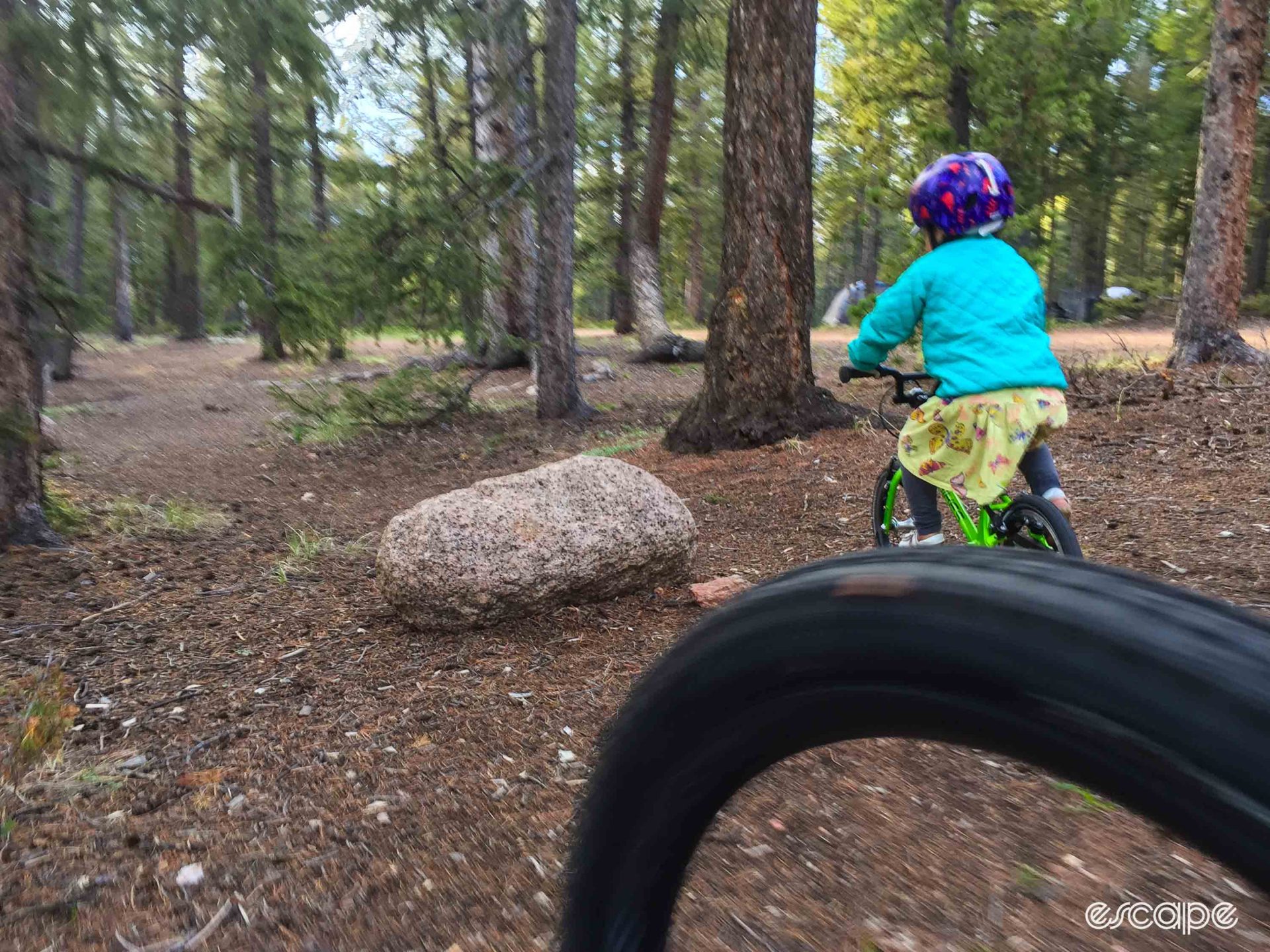
We eventually sold that bike to someone around the corner after our daughter eventually outgrew it, but we’ve always wished we’d kept it – and even more so now that I’ve learned the heartbreaking news that after 18 years in business, the company is shutting its doors once current stocks are sold.
It’s relatively easy nowadays to find a good bike for your kid, but it wasn't always that way, and certainly not when Islabikes first set up shop. Back then, the primary design goal for kid bikes was that they be cheap to buy since they’d be outgrown so quickly. But Isla Rowntree – a multiple-time UK national champion – rightfully recognized that it was almost more important for little ones to have high-quality and lightweight bikes that fit them well than it was for adults since they were just getting started and didn’t have the strength or muscle memory to lean on like we do.
Think about it: If you’re a kid that weighs just 20 kg or so, learning to ride a typical bike of the time would be like me trying to manhandle a bike that’s several sizes too big, outfitted with 200 mm-long crankarms, and weighs 35 kg. It just doesn’t make sense.
Like that little Cnoc 14, every bike in the Islabike range was designed first and foremost to be lightweight and fit properly, with seemingly every little bit chosen with kids in mind. Small-diameter aluminum frames and forks. Smaller saddles for littler behinds. Smaller-diameter grips with short-reach brake levers for littler hands. Fast-rolling tires and lightweight aluminum rims that were easy to get going. Genuinely high-quality bearings throughout that would hold up for kid after kid after kid.
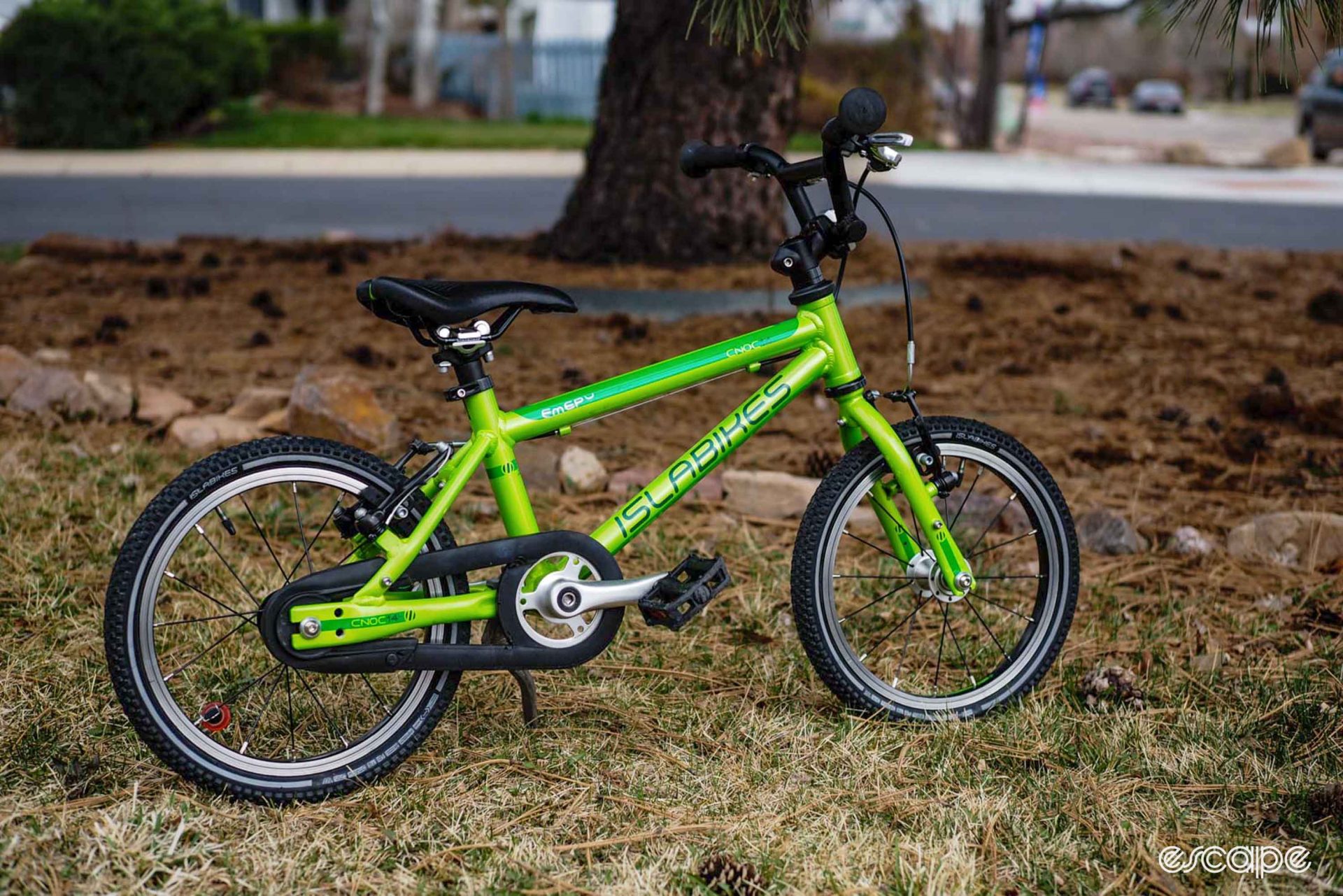
Nearly two decades later, those sorts of things are almost taken for granted, and there are so many brands in the space now. Woom, Early Rider, Trailcraft, Prevelo, and Cleary are just a few, and I can’t help but believe that every one of those brands was at least partially inspired by what Rowntree was doing. Islabikes didn’t just make bikes; they legitimately started a movement.
I’ve never had the privilege of speaking to Isla Rowntree, and the company’s official statement didn’t reveal the reasons for ceasing operations, although the mention that Islabikes has "no outstanding creditors" suggests the decision was rooted more in personal reasons than financial ones. Maybe it was just getting too hard. Perhaps there was too much competition now (which would be more than a little ironic in my mind if that really was a contributing factor). Or Rowntree just felt it was time. Regardless, I’d imagine there are some mixed feelings here. Some sadness that it eventually had to come to an end. Maybe a bit of disappointment. Perhaps even some relief.
But what I sincerely hope she feels more than anything is tremendous satisfaction in knowing how much positive impact she had, not only on an industry, but on countless kids who could experience the elation of riding a bike because of what she devoted the last two decades of her life to doing.
On behalf of cycling parents everywhere, Isla, all I can say is ‘thank you’, and I wish you well for the days ahead. I’m forever grateful.
Did we do a good job with this story?

